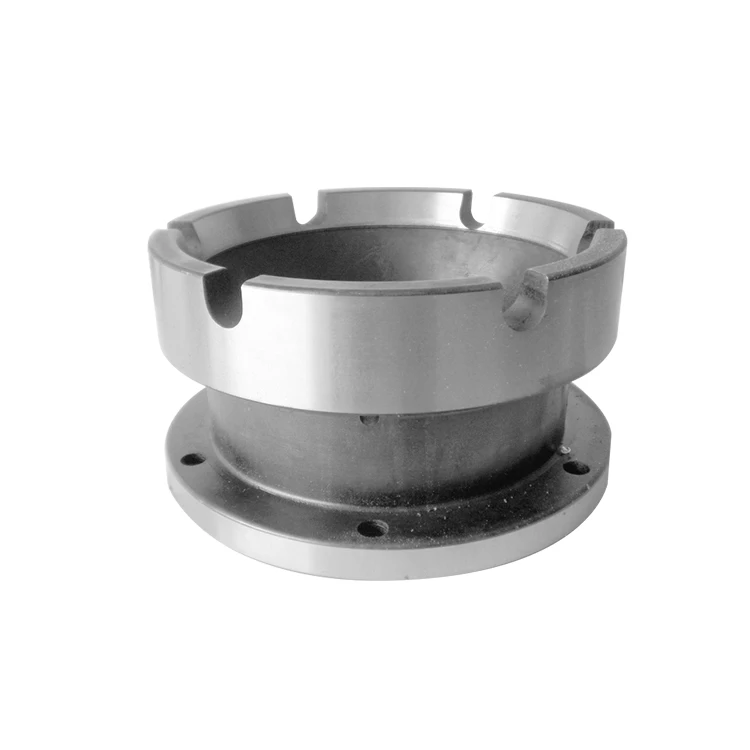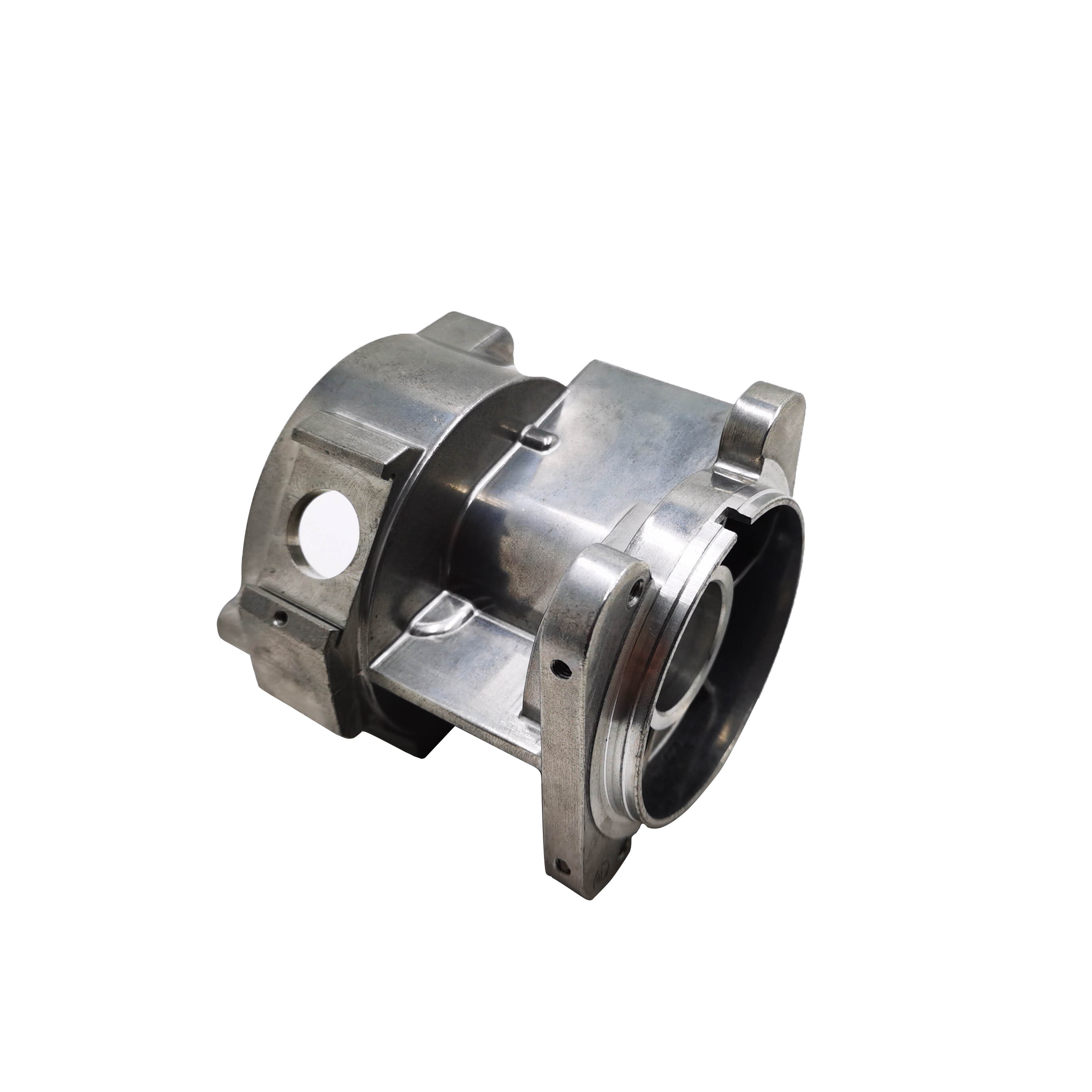Aluminum Casting Company innovations that drive industrial design
Wiki Article
The Duty of Aluminum Foundries ahead of time Lightweight Manufacturing Solutions
Aluminum factories greatly contribute to the development of light-weight manufacturing options. Their cutting-edge casting innovations produce high-strength, light-weight elements vital for industries like vehicle and aerospace. This innovation not just improves item performance but also advertises sustainability via using recycled products. As these foundries adapt to emerging innovations and practices, they lead the way for future developments in making effectiveness and ecological responsibility. What lies ahead in this transformative journey?The Benefits of Lightweight Products in Production
As sectors increasingly seek effectiveness and sustainability, the adoption of lightweight materials in manufacturing has emerged as a necessary approach - aluminum casting. These materials, especially aluminum and composites, offer numerous advantages that boost manufacturing procedures and product performance. Mainly, their decreased weight adds to lower energy intake throughout transport and procedure, causing significant expense savingsFurthermore, light-weight materials help with the design of more facility geometries, enabling better innovation in product development. This adaptability usually leads to enhanced functionality and performance, dealing with the advancing demands of contemporary customers.
Additionally, making use of light-weight materials can improve the long life of products as a result of their resistance to rust and fatigue. This durability not just minimizes maintenance expenses but additionally supports sustainability efforts, as longer-lasting items add to much less waste. To summarize, the advantages of lightweight materials are critical in driving performance, advancement, and environmental duty in production.
Innovations in Aluminum Casting Technologies
Recent improvements in light weight aluminum spreading technologies are reinventing the manufacturing landscape, specifically in the production of light-weight parts. Advancements such as high-pressure die spreading and vacuum die spreading have considerably boosted the precision and surface coating of light weight aluminum components - Aluminum Casting Company. These methods permit the creation of complicated geometries while decreasing product waste and enhancing mechanical homes
Furthermore, the implementation of real-time monitoring systems assures quality assurance throughout the casting procedure, bring about even more consistent product results. Collectively, these developments not only improve the efficiency of light weight aluminum elements however likewise sustain the sector's shift in the direction of more lasting production methods.
Applications of Aluminum Elements in Different Industries
While light weight aluminum elements have long been used in different markets, their adaptability and light-weight residential or commercial properties remain to drive cutting-edge applications across fields such as vehicle, aerospace, and construction. In the auto sector, light weight aluminum is progressively made use of for engine blocks, wheels, and body panels, enhancing fuel performance and efficiency. Aerospace makers take advantage of aluminum for airplane frameworks and parts, maximizing its strength-to-weight ratio to improve gas economic climate and payload capacity.In the construction market, aluminum is preferred aluminum casting for window structures, roof covering, and structural components, supplying sturdiness and resistance to corrosion while lowering total building weight. In addition, the electrical and electronic devices sectors profit from aluminum's conductivity and lightweight nature, using it in electrical wiring, units, and warm sinks. These varied applications highlight the crucial role of light weight aluminum components, which not just satisfy industry needs yet additionally add to developments in item style and functionality throughout numerous fields.
Sustainability and Energy Effectiveness in Light Weight Aluminum Foundries
The light weight aluminum factory industry plays a vital duty in advertising sustainability and power efficiency, specifically as need for light-weight parts remains to grow across various fields. Factories are progressively adopting eco friendly techniques, such as utilizing recycled aluminum, which substantially lowers energy intake and greenhouse gas discharges compared to primary aluminum manufacturing.Advancements in casting technologies improve energy effectiveness by maximizing the melting processes and minimizing waste. Methods like die casting and financial investment casting permit for precise product usage, reducing excess and scrap.
In addition, lots of factories are purchasing eco-friendly energy sources to power operations, further decreasing their carbon impact. Implementing power monitoring systems enables factories to check and enhance energy usage, guaranteeing they run at peak effectiveness.

Future Fads in Lightweight Manufacturing Solutions
How will emerging technologies shape the future of light-weight manufacturing remedies? Technologies such as innovative materials, automation, and additive manufacturing are established to redefine manufacturing processes. The combination of clever production technologies, consisting of the Net of Things (IoT) and fabricated intelligence (AI), will certainly make it possible for real-time monitoring and optimization, boosting effectiveness and reducing waste.
As sustainability continues to be a critical worry, lightweight remedies will progressively concentrate on reusing and recycling products, aligning with round economic situation concepts. This advancement in light-weight production will not only boost item efficiency but also add to ecological objectives, guaranteeing that the industry continues to be affordable in a swiftly altering market landscape.
Regularly Asked Questions
How Do Light Weight Aluminum Foundries Ensure Quality Assurance in Production?
Aluminum factories guarantee top quality control in manufacturing via strenuous screening, standardized procedures, and constant monitoring - Aluminum Foundry. They execute experienced personnel and advanced technologies to keep uniformity, decrease issues, and meet industry requirements throughout the production procedureWhat Are the Key Tests Faced by Light Weight Aluminum Foundries?
Light weight aluminum factories deal with obstacles such as rising and fall basic material expenses, maintaining manufacturing effectiveness, making certain regular high quality, adapting to technical developments, and conference ecological policies, every one of which influence their total functional performance and competition on the market.Exactly How Does Aluminum Recycling Effect Shop Operations?
Aluminum recycling substantially enhances factory operations by decreasing raw material expenses, decreasing energy intake, and reducing environmental effect. This sustainable method enables foundries to enhance efficiency while satisfying raising demand for light-weight, high-performance light weight aluminum products.What Skills Are Needed for Employees in Aluminum Foundries?
Workers in light weight aluminum factories need skills in metallurgy, machining, high quality control, and safety practices. Efficiency in running machinery, understanding alloy buildings, and analytic are likewise vital for efficient production and keeping high safety criteria.Just How Do Light Weight Aluminum Foundries Take Care Of Waste Monitoring?
Light weight aluminum foundries manage waste via recycling scrap metal, utilizing efficient waste segregation strategies, and adhering to ecological laws. They execute lasting methods to decrease garbage dump contributions, ensuring that dangerous products are taken care of sensibly.Aluminum shops substantially add to the evolution of light-weight production solutions. Recent advancements in aluminum spreading technologies are revolutionizing the production landscape, especially in the production of lightweight elements. While aluminum elements have long been used in various industries, their convenience and light-weight properties continue to drive ingenious applications across industries such as automobile, aerospace, and construction. In addition, the electrical and electronics industries profit from light weight aluminum's conductivity and light-weight nature, utilizing it in circuitry, units, and heat sinks. The aluminum foundry sector plays an important role in advertising sustainability and power effectiveness, specifically as demand for lightweight components continues to grow across various sectors.
Report this wiki page